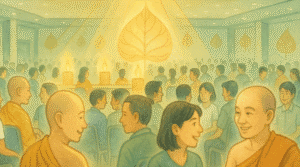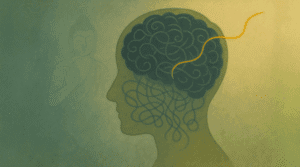This teaching is extracted from the Q&A section of a lecture by Sis Sylvia Bay at Buddhist Fellowship Singapore: https://www.youtube.com/watch?v=SWfoq…. The following is a transcript of the above video with edits.
Transcript
There is no one word that can sum up the Dhamma.
Once you try to categorise the Dhamma, you would run into some difficulties. Because every word that you use and every concept that you have, whether you call it a philosophy or a science or a way of life, every word comes with it a baggage of ideas in people’s minds.
So, when you use a word to sum up the Dhamma, what you will end up unwittingly doing is causing others to come straight away from that angle and that angle only. Hence, if you say that the Dhamma is a Philosophy, and then the mind would go into thinking about the philosophy as per how you know it.
I think it (such definition) is not fair, and it is really quite incomplete. The Dhamma is way more than science, and philosophy, and a way of life. Depending on the individual, the Dhamma can be all of the above.
Personally, for me, the Dhamma is reality. To me, Dhamma explains the reality of the world, it explains how the mind works, and how the world works. It explains what is meaningful, and what is most precious in life.
To me, a religion is a relationship between man and divinity. In a religion, there is a God who sets in place certain rules and expected conduct — the rights, the wrongs, the whys, the explanations. Everything is set within that religion, and people play by the rules that is established within that religion.
Buddhism has no God. So, to me straight away, this is not a religion. It’s far more than that.




